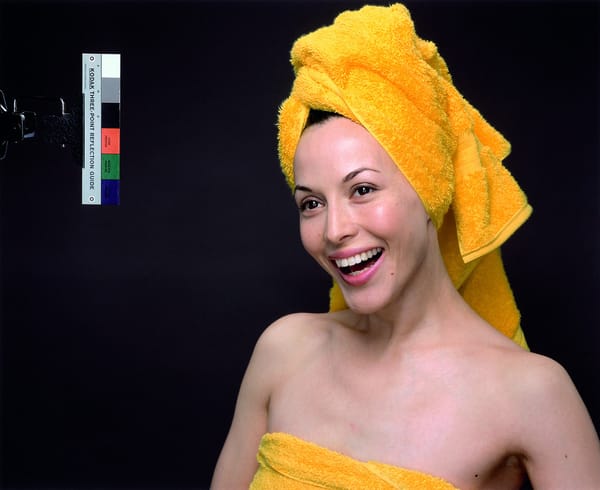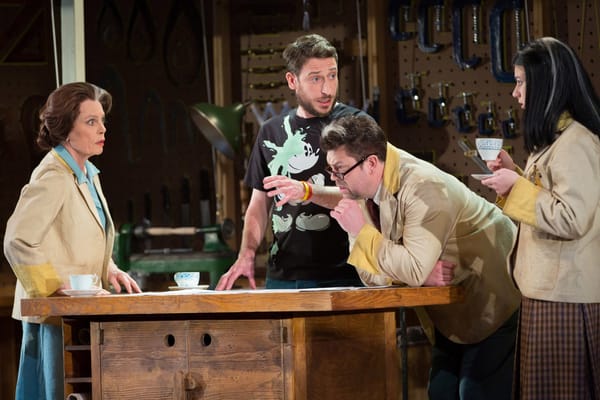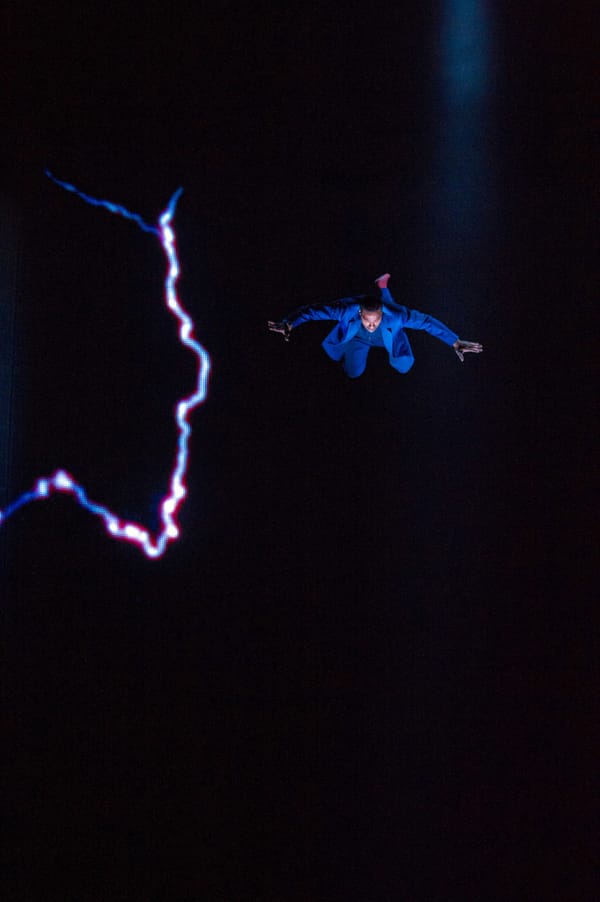Blood: A Tale of Two Halves
Clara Nevola Clark finds Soho Theatre’s play divisive
Just when we thought there couldn’t possibly be another _Romeo and Juliet _reinterpretation, the Tamasha Theatre Company chipped in with their own modern tale of star-crossed lovers (can’t talk about that play without saying the word star-crossed folks, it’s a legal requirement for reviewing). After all, reinterpretations are all about the retelling of classic story in a way a modern audience can relate to, right? So Emteaz Hussain wrote Blood – as she herself puts it, “a contemporary urban love story” of two British Muslims, Caneze and Sully, fighting their family ties for the sake of love. The result is a play even more removed from a modern audience than the 16th century one it’s inspired by.
The text oscillates between forced poetical lyricism and overeager bradistani dialect – think wannabe Shakespeare, but down with kids. The drama revolves round the stereotyped lives of young, northern, working class Muslims, surrounded by gang warfare, matchmaking aunts, and discrimination.
For someone like your reviewer, only recently out of teenagehood, the adolescent love scenes are cringingly mumsy: he raps about his love to her (raps! He actually raps, I kid you not), she wears his jacket to school, and they have an illicit picnic in her room one night. More than a retelling of Romeo and Juliet, Blood had all the look of being a middle class and middle aged idea of what a gritty version of _High School Musical _would be.
Despite the relentlessly awkward text, Blood somehow manages to be moving
As far as the text is concerned, Blood is absolutely irredeemable; the dialogue will make you squirm from start to finish, the jarring “innit bruv”s clashing with the predictable, pseudo-dramatic repetition of bad poetry.
Yet, miraculously, despite the relentlessly awkward text, Blood managed to be a decent and almost moving production. With the exception of film stars taking the stage, going to the theatre normally equates to going for the play alone.
Generally, one goes for the performance and not for the actors; the plays themselves get reenacted, redirected, reinvented. A good play can be ruined by bad actors, but it will find another life in a more competent cast. In this case however, the production was saved by two startlingly good actors. Krupa Pattani and Adam Samuel-Bal convey enough youthful passion and teenage angst to transform Caneze and Sully’s lines into something meaningful. They are good enough to allow the audience to almost forget the clunky text, transporting them along on the wave of emotions.
Starting off a bit shaky (the accents was a bit touch and go) the pair grow into their roles throughout the play and, in doing so, take you with them. They transform from one dimensional stereotypes of teenagers to almost-believable, fully rounded people, overcoming the huge hurdle posed by the often unnatural-sounding lines they are hampered with.
Blood is an unusual example of actors so good that they redeem an execrable play
Adam Samuel-Bal gives a goofy spin to his character, breaking up the forced drama with some genuinely funny moments. The two, as well as acting their own part, also act out the other characters through their recollections. The whole play is recounted by them, a flashback that enables them to relive their story. Samuel-Bal’s impression of a pushy Pakistani aunt is priceless, as he jumps from one side of the table to the other, acting out both parts of the dialogue. Krupa Pattani is exceptionally good at evoking other characters; she switches from her slightly petulant feminine character to a gang-leader bully boy effortlessly. In one scene she tells of how her family-imposed fiancé comes over with a copy of Asian Bride, showing off about how opulent their wedding will be. Using nothing more than mere body language, she conjures up a muscular, small-town henchman. In another, she shows both sides of a rape scene with startling efficacy. Both the actors and the director, Esther Richardson, are responsible for the success of these scenes, as the minimal props on the stage allow a cast of two to populate a world filled with family, employers, fellow students and colleagues. Arun Ghosh’s electronic score is also worth a mention, as it underlines the clash between the lightness of Sunny and Caneze’s love and the oppression of their cultural restrictions.
All in all, Blood is an unusual example of actors so good that they redeem a truly execrable play. Or maybe it’s an example of a play so unutterably bad that even two energetic and talented young actors can’t make you forget quite how predictable and jarring the text actually is...
_Blood is on at Soho Theatre until 16th May. Ticket from £12, available online. _







